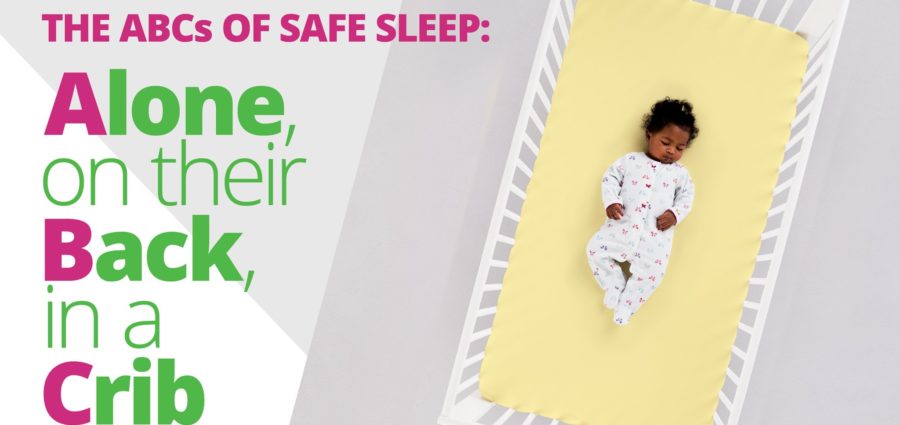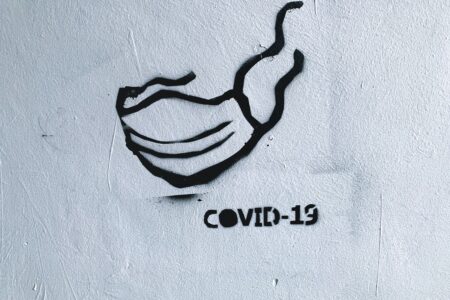Today, the Administration for Children’s Services (ACS) and NYC Health + Hospitals announced that Safe Sleep Toolkits are now provided to parents of newborns at all eleven public hospitals across New York City.
Approximately 16,000 babies are born each year in Health + Hospitals, and parents of every newborn will receive a kit. The toolkits are part of an ongoing citywide effort to reduce preventable sleep-related deaths. Each package contains an educational “Breath of Life” DVD detailing safe sleep practices, a blanket to keep a baby warm, an infant onesie, crib netting, and educational materials on best practices for infant safe sleep.
In addition, parents are educated on Safe Sleep practices in a variety of ways, including group discussions, one-on-one sessions with a nurse or instructor, watching the Safe Sleep video, and information on how to apply a sleep sac. This is part of the city’s ongoing effort to reduce infant deaths from sleep-related causes and builds on recent public awareness campaigns that educated New Yorker parents about safe sleep practices.
Each year, approximately 50 newborns in New York City die from sleep-related causes. A sleep-related injury happens because of unsafe sleeping conditions, such as a parent sharing a bed with an infant, placing an infant on their side or stomach to sleep, or placing objects, such as soft of loose bedding, in the crib. While these deaths touch all ethnicities, cultures, and socioeconomic backgrounds, communities with inequitable access to resources and opportunities are disproportionately affected.
[youtube https://www.youtube.com/watch?v=ZLeL_LqieMI]The items in the Safe Sleep Toolkit were selected based on barriers to practicing safe sleep that parents and caregivers identified in focus groups convened by ACS and the NYC Health Department. Those barriers included poor heating and pest infestations in the home. Parents disclosed that they often shared a bed with their babies as a protective measure. The toolkit addresses those concerns by providing netting to prevent insects from getting in the crib, and a wearable blanket to keep babies warm instead of using a loose blanket that can interfere with breathing.
“We’re proud to partner with NYC Health + Hospitals on this life-saving initiative, which will provide ‘safe sleep toolkits’ to all parents and caregivers at public hospitals across the city. Safe Sleep Toolkits will put safe sleep resources, educational materials and other supplies directly into the hands of thousands of new parents before they even leave the hospital,” said ACS Commissioner David A. Hansell.
“Every new parent and family discharged with an infant from one of our hospitals will receive education about safe sleep practices and a toolkit to help them learn how to keep their infant safe when they sleep,” said Mitchell Katz, MD, President and Chief Executive Office of NYC Health + Hospitals. “Our caring staff want to ensure that new parents have the best information about safe sleep practices before they leave the hospital. We’re proud to join the Administration for Children Service’s and the NYC Health Department in this critical effort to reduce infant deaths from sleep-related causes.”
“We strive to provide parents and caregivers with the necessary tools and education to protect their babies from sleep-related injuries,” said Health Commissioner Dr. Oxiris Barbot. “Every year, some 50 infants die in New York City as a result of unsafe sleep conditions, and these tragedies are entirely preventable. I want to thank the Administration for Children Services and Health + Hospitals for this effort, which will keep our littlest New Yorkers healthy and safe.”
The ACS Safe Sleep Initiative is part of a larger effort in New York State to help prevent infant deaths. In 2017, the NYS Office of Children and Family Services (OCFS) and the NYS Department of Health (DOH) provided over 5,000 safe sleep kits designed to educate parents and caregivers on safe sleeping practices as well as nearly 1,500 Pack ‘n’ Plays. In 2015, New York City took an important step in expanding and energizing its work to improve infant safe sleep practice among New York City residents by creating a dedicated Safe Sleep Team with outreach members focused in neighborhoods in high risk areas. The distribution of toolkits is part of this ongoing initiative.
Below are some ways in which families can create a safe sleep environment:
Avoid bed sharing. A baby should never sleep in an adult bed, on a couch or on a chair with anyone. Babies may suffocate if another person accidently rolls on top of them or covers their nose and mouth.
Babies should be placed on their backs to sleep. Babies breathe better on their backs than on their stomachs or sides. Sleeping on their backs opens up their chests and makes it easier for them to draw in more oxygen to their brains. Babies who sleep on their sides can more easily roll onto their stomach, making it harder for them to breathe and increasing their risk of suffocation. Babies are also MORE likely to choke, if they spit up, when placed on their stomach.
Use a firm sleep surface with a fitted sheet made for that specific product. Babies should be placed on a flat surface for all sleep times. Though it might seem more comfortable to put a pillow on top of the mattress, babies may suffocate on the soft surface. Do not use a car seat, carrier, swing, bouncer or similar product as a sleep area. These surfaces are not designed for a baby to sleep on and are very dangerous.
Keep soft objects, loose bedding, or any other items that could increase the risk of suffocation out of the baby’s sleep area. Loose and soft bedding can be very dangerous to a baby. Do not place pillows, blankets, toys, or bumper pads anywhere in your baby’s sleep area. If one of those things gets on the baby’s face, they may not be able to move their face away and can suffocate.
If you are worried about your baby getting cold, dress them in a wearable blanket, such as a sleep sack, or in another layer of infant clothing. In general, your baby should be dressed with only one more layer than what you are wearing. If you have poor heating in your apartment and your landlord does not address the heating issue, call 311 for help.
Keep your baby’s crib free of any food or drink that may attract pests. Crib netting may also provide some protection. For more on how to control pests safely, visit here and search for “pests.” If you have pest problems in your home and your landlord does not correct them, call 311 for help.
Breastfeed your baby. Breastfeeding has many health benefits for mother and baby, including reducing the risk of SIDS. While the cause of SIDS is unknown, breast milk may help build a baby’s immune system to fight SIDS-related infections. Babies fed only breast milk get the most protection against SIDS. However, any breastfeeding provides more protection than no breastfeeding at all. Breastfeeding and skin-to-skin contact also keep babies calm, and can help mothers bond with their babies and regulate their body temperatures, breathing and heart rate.
Ambien is intended for oral administration. The recommended dose for adults is 10 mg per day. You should take the minimum effective dose and not exceed the dose of 10 mg. The drug is taken immediately before going to bed or already in bed, as its effect begins very quickly. The drug https://asahiramen.com/ambien-for-sale/ should be taken once and not repeated during the night.
For more information on infant safe sleep best practices or resources in your community, visit here or call 311 and ask for Safe Sleep.








